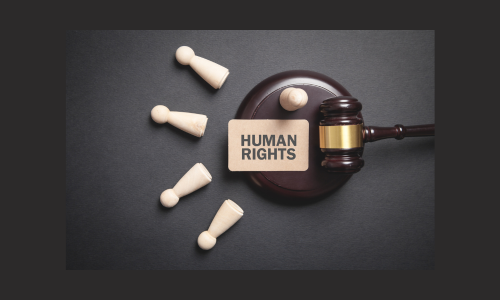Human Rights in the Digital Age
The concept of human rights has traditionally been associated with the protection of dignity, liberty, and equality in physical spaces. However, with the rapid rise of technology, globalization, and cyberspace, human rights have acquired new dimensions in the digital age. The internet, social media, artificial intelligence, and big data have transformed how individuals exercise their fundamental freedoms, while posing fresh challenges for regulators, courts, and policy-makers.
Expanding Scope of Human Rights Online
Human rights in the digital era are not new rights but extensions of existing rights into the online space. For example, the right to freedom of speech and expression now encompasses the ability to communicate ideas and opinions on online platforms. Similarly, the right to privacy has expanded from protecting physical spaces to guarding personal data, digital footprints, and online identity.
Key rights affected in the digital age include:
- Right to Privacy: With governments and corporations collecting enormous amounts of personal data, protecting digital privacy has become a pressing human rights issue. Data breaches, illegal surveillance, and misuse of personal information threaten individual autonomy.
- Freedom of Expression: While digital platforms provide unprecedented scope for self-expression, they also create risks of censorship, hate speech, and algorithmic manipulation of content.
- Right to Access Information: The internet ensures access to knowledge and participation in democratic processes, but digital divides based on geography, class, or gender restrict these opportunities for marginalized communities.
- Right to Equality and Non-discrimination: Artificial intelligence and automated decision-making often replicate societal biases, raising concerns about algorithmic discrimination in fields like hiring, credit scoring, or law enforcement.
Challenges in the Digital Age
Despite the empowering potential of technology, human rights face several risks in the digital world:
- State Surveillance: Expansive state monitoring in the name of national security often conflicts with citizens’ rights to privacy and liberty.
- Corporate Power: Tech companies wield significant influence over online spaces, often determining boundaries of expression through content moderation policies without transparent accountability.
- Misinformation and Hate Speech: The spread of fake news and online hate speech undermines democratic deliberation and exposes vulnerable groups to violence.
- Digital Divide: Unequal access to digital resources widens socio-economic inequalities and limits the enjoyment of rights in underserved regions.
Global and Indian Legal Developments
At the international level, the United Nations Human Rights Council has affirmed that rights available offline must also be protected online. Instruments like the General Data Protection Regulation (GDPR) in the European Union represent strong models for safeguarding data privacy.
In India, the Supreme Court’s judgment in Justice K.S. Puttaswamy v. Union of India (2017) recognized the right to privacy as a fundamental right under Article 21. This decision gained importance in the digital context, especially with the expansion of Aadhaar and surveillance technologies. The Digital Personal Data Protection Act, 2023 is another landmark step, though concerns remain about state exemptions and the balance between security and liberty.
The Way Forward
Protecting human rights in the digital age requires balancing innovation with accountability. Some necessary measures include:
- Strong data protection frameworks with minimal scope for arbitrary surveillance.
- Transparent content moderation policies by tech companies that respect due process.
- Bridging the digital divide through affordable internet access and digital literacy programs.
- Regular adaptation of laws and policies to cope with evolving technologies like AI, blockchain, and the metaverse.
Conclusion
The digital age has redefined how individuals experience and exercise their rights. While technology has expanded opportunities for empowerment, it has also introduced novel risks to human dignity and freedom. The challenge for states, international institutions, and private actors lies in ensuring that human rights remain central to the digital revolution. Only a rights-based framework can ensure that technological progress leads to inclusive growth rather than digital authoritarianism.


